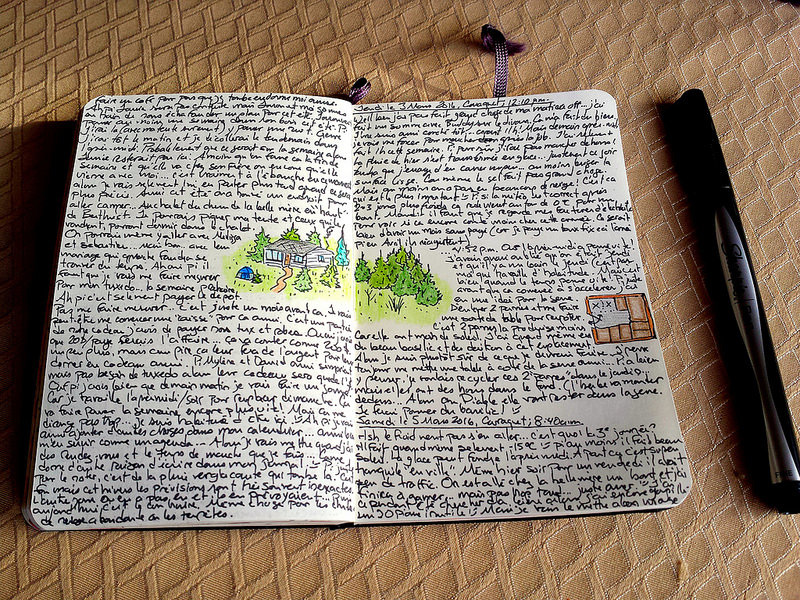SUMMER READINGS & ACTIVITIESI selected the readings and activities that we will dig into together this summer so that we can:
|
We all need and want the summer to be restorative, energizing, so I hope that you all will come to our summer work with enthusiasm, taking advantage of the fact that we have the luxury of time and space to interact with and reflect on the ideas in our summer work differently than we are able to during the rush of the school year.
While I am not assigning summer due dates, I am including a suggested calendar so that you can be sure you're on task. Putting off this summer work will rob you of the time to grapple with, reflect on, and question the difficult concepts around which our course is structured. If none of this sounds like fun to you, I would encourage you to reconsider your course requests. So banish apathy, jump in with both feet, and dig into the summer work with patience, enthusiasm, and, above all, curiosity! |
READING:
|
READING:
|
WRITING:
|
WRITING:
|
Specific Assignments:
Three Reflective Blog Posts (end of May, beginning of July, and mid-August) of at least 500 words, each of which reflects on the reading and writing you've accomplished up to that point, incorporates at least one image from your commonplace book, communicates your thoughts on the image from your commonplace book that you selected, and explains your current thoughts on the class and what you imagine we'll accomplish together based on the work you've done to that point in time (i.e. beginning of summer, middle of summer, end of summer)
One BrainPickings.org-style piece centered around one key concept from our summer reading selections that most stands out to you and that also weaves in the connected central ideas from at least other four other selections, like Maria Popova does in the BrainPickings.org pieces
• you should begin by establishing a clear understanding of the moves that Popova makes in this kind of piece (including the digital and visual rhetorical moves as well as the moves she makes as a writer) as well as the kinds of claims she makes and how she communicates and supports them; perform a rhetorical analysis of Popova's pieces to be sure you are aware of precisely how they work visually, intellectually, and rhetorically, how long the longer essays are, how they incorporate quotes, images, font and layout decisions, etc;
• in addition to the piece itself, write a reflective cover letter that
• here are some examples (but feel free to explore more at brainpickings.org):
Three Reflective Blog Posts (end of May, beginning of July, and mid-August) of at least 500 words, each of which reflects on the reading and writing you've accomplished up to that point, incorporates at least one image from your commonplace book, communicates your thoughts on the image from your commonplace book that you selected, and explains your current thoughts on the class and what you imagine we'll accomplish together based on the work you've done to that point in time (i.e. beginning of summer, middle of summer, end of summer)
One BrainPickings.org-style piece centered around one key concept from our summer reading selections that most stands out to you and that also weaves in the connected central ideas from at least other four other selections, like Maria Popova does in the BrainPickings.org pieces
• you should begin by establishing a clear understanding of the moves that Popova makes in this kind of piece (including the digital and visual rhetorical moves as well as the moves she makes as a writer) as well as the kinds of claims she makes and how she communicates and supports them; perform a rhetorical analysis of Popova's pieces to be sure you are aware of precisely how they work visually, intellectually, and rhetorically, how long the longer essays are, how they incorporate quotes, images, font and layout decisions, etc;
• in addition to the piece itself, write a reflective cover letter that
- contextualizes the piece for your readers,
- links to the specific BrainPickings pieces you most respected and mostly closely tried to emulate,
- explains the rhetorical moves you hoped to make, and
- describes how you incorporated strategies you recognized in Popova's own pieces on BrainPickings.org;
• here are some examples (but feel free to explore more at brainpickings.org):
- The Psychology of Time and the Paradox of How Impulsivity and Self-Control Mediate Our Capacity for Presence
- Famous Advice on Writing: The Collected Wisdom of Great Writers
- Fixed vs. Growth: The Two Basic Mindsets That Shape Our Lives
- Ursula K. Le Guin on Power, Oppression, Freedom, and How Imaginative Storytelling Expands Our Scope of the Possible
- Nobel-Winning Physicist Frank Wilczek on Complementarity as the Quantum of Life and Why Reality Is Woven of Opposing Truths
- Mary Oliver on What Attention Really Means and Her Moving Elegy for Her Soul Mate
- Hemingway’s Advice on Writing, Ambition, the Art of Revision, and His Reading List of Essential Books for Aspiring Writers
- Anne Lamott on Writing and Why Perfectionism Kills Creativity
- Italo Calvino on the Unbearable Lightness of Language, Literature, and Life
- Anaïs Nin on Embracing the Unfamiliar
- How to Read Like a Writer
- What Makes a Person: The Seven Layers of Identity in Literature and Life
- Legendary Physicist Freeman Dyson on God, Unanswerable Questions, and Why Diversity Is the Ruling Law of the Universe




